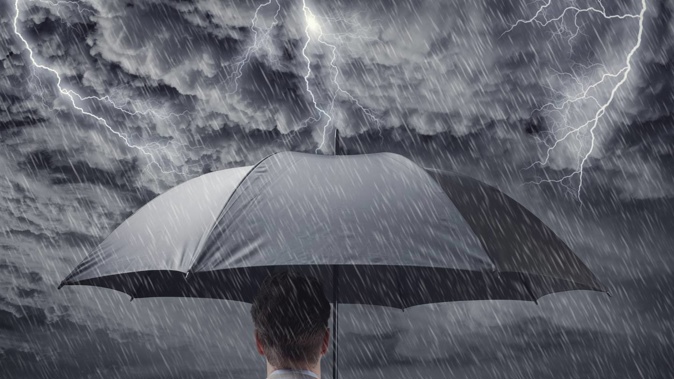
Bankers, economists and politicians are ringing the recession alarm bell around the world.
Economists in New York recently told a group of New Zealand businesspeople a recession was likely – and this message is also starting to make the rounds in the major European economies.
NZ Herald personal finance editor and co-host of the Continuous Disclosure podcast Tamsyn Parker told the Front Page podcast that mood was downbeat in New York.
"The economy is slowing around the world, and growth is slowing in most countries," says Parker.
"The question economist [Karen Harris] put to us was whether this is going to be a normal recession or if we're going to see a more extreme meltdown, similar to what we saw during the Global Financial Crisis."
If we do face a sharper downturn, Parker says the impact will likely be felt in KiwiSaver balances.
"[Harris] talked about whether there could be another 20 per cent fall in the markets. That's not guaranteed, but if that did happen it would really come through in people's KiwiSaver balances. Obviously, if you're close to retirement that's not ideal."
Much of the current economic concern is focused on the global fight against inflation, which is taking longer than many analysts initially expected.
These concerns have been mirrored in Aotearoa, where we've seen the inflation rate come in at 7.2 per cent – much higher than the 6.5 per cent initially forecast.
"What high inflation means is that the Reserve Bank will need to keep the foot on the pedal when it comes to increasing the official cash rate – and that obviously feeds through into mortgage rates, which will keep rising," says Parker.
- PM says NZ economy can 'rebound' from recession; rules out reducing tobacco tax
- NZ escapes recession: New numbers show state of our economy
- Cameron Bagrie: 'We will have another global recession'
"It isn't just individuals affected here. Businesses that borrow will be affected as well. That flows through into everything, including businesses and how must they charge people for their products and services. If they're facing increased costs to finance labour, they have to pass it on to consumers, who are feeling the pressure in every direction."
These rising interest rates are also heightening the risk of mortgage shock for many homeowners who locked in fixed rates around two years ago.
"A director of one of the major banks suggested that a large chunk of borrowers are sitting on a fixed mortgage rate with a two in front of it. And obviously, that is where we were two years ago. We're now seeing mortgage rates at 5, 6 or 7 per cent. So that's a massive jump for people, especially if they have a large mortgage they've borrowed recently."
Once again, first-home buyers are likely to face the brunt of this hit.
"If you didn't have much of a deposit to start with, it's going to be a big increase for people to face. And that's where the mortgage shock comes from."
The banks remain confident that most homeowners will be able to withstand the impact of this shock, but some families will be affected.
"When the push comes to shove, the question will be whether people do cope with those higher rates or whether they're having to refinance, stretch their mortgage out for a longer period of time or whether they're even forced to sell their homes."
Parker says that one thing the New Zealand economy has in its favour is continued high levels of employment.
As long as people keep their jobs, they will at least have some flexibility in terms of managing through this tough period.
Take your Radio, Podcasts and Music with you









